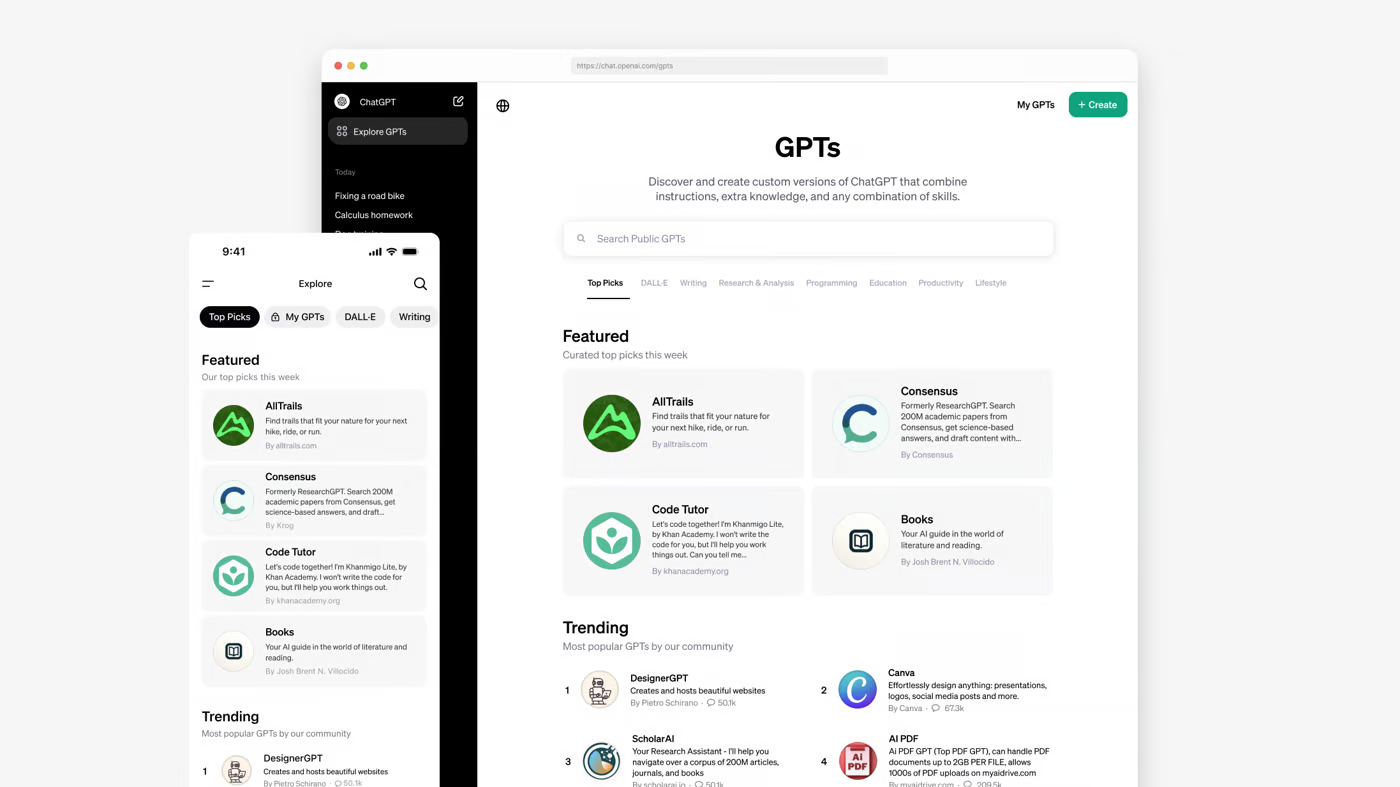 AI
AI
 AI
AI
 AI
AI
OpenAI today launched the GPT Store, a marketplace through which customers can access custom versions of ChatGPT created by other users.
The artificial intelligence developer also introduced a new paid tier of the chatbot. ChatGPT Team, as the offering is called, is geared toward organizations and will be available starting at $25 per user per month. It’s positioned as a more accessible alternative to the Enterprise tier OpenAI debuted last year.
The GPT Store, the first new service the AI developer launched today, allows users to publicly share their customized versions of ChatGPT. Such custom AI models, or GPTs, are optimized for specific tasks that the standard version doesn’t necessarily support out of the box. A GPT can interact with external applications and draw on proprietary datasets to generate answers.
Custom versions of ChatGPT can be built using a low-code development tool built into the service’s interface. To share a GPT via the newly launched GPT Store, users must make it publicly accessible and create a so-called Builder Profile in the marketplace. OpenAI says marketplace submissions will be reviewed using a combination of manual and automated methods.
“This new platform furthers the democratization of AI development, simplifying the way users and developers create GPTs and AI products,” Shahar Chen, chief executive officer of venture-backed AI startup Aquant, told SiliconANGLE. “In 2023, AI solutions were broadly focused, but with the launch of OpenAI’s marketplace in 2024, we’ll see a noticeable shift towards vertical, industry-specific AI, moving from general industry applications to task-specific ones. This requires developers to refine their GPTs for more precise, specialized use cases.”
Besides customer-created GPTs, the GPT Store will also feature chatbots built by OpenAI partners. One such chatbot, from Khan Academy, can help users learn software development concepts. There are also a range of other partner-built GPTs optimized for tasks such as designing presentations and searching academic papers.
“In Q1 we will launch a GPT builder revenue program,” OpenAI detailed in a blog post. “As a first step, U.S. builders will be paid based on user engagement with their GPTs. We’ll provide details on the criteria for payments as we get closer.”
The GPT Store is rolling out alongside ChatGPT Team, a new paid version of the chatbot. It’s geared toward organizations and can be purchased for either $25 or $30 per user per month depending on whether a company chooses annual or monthly billing.
ChatGPT Team has a similar feature set as ChatGPT Plus, the paid consumer version of the chatbot. Users can enter prompts comprising up to 32,000 tokens, with each token corresponding to a few letters or numbers. Like in ChatGPT Plus, the interface provides access to the DALL-E 3 image generation tool and data science features.
What sets ChatGPT Team apart is a tool OpenAI describes as a dedicated collaborative workspace. According to the AI developer, members of a team can use the tool to share GPTs with one another. Administrators, in turn, have access to controls for managing workspaces and the associated user accounts.
ChatGPT Team is a more accessible alternative to ChatGPT Enterprise, the other paid version of the chatbot that OpenAI offers for organizations. The latter offering reportedly costs as much as $60 per user per month. It offers several features not available in ChatGPT Team or ChatGPT Plus, including faster AI response times and an expanded set of administrative controls.
Support our mission to keep content open and free by engaging with theCUBE community. Join theCUBE’s Alumni Trust Network, where technology leaders connect, share intelligence and create opportunities.
Founded by tech visionaries John Furrier and Dave Vellante, SiliconANGLE Media has built a dynamic ecosystem of industry-leading digital media brands that reach 15+ million elite tech professionals. Our new proprietary theCUBE AI Video Cloud is breaking ground in audience interaction, leveraging theCUBEai.com neural network to help technology companies make data-driven decisions and stay at the forefront of industry conversations.